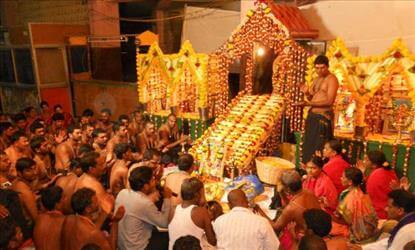Puja is a prayer ritual performed by Hindus to host, honor and worship one or more deities or to spiritually celebrate an event. The word Puja comes from Sanskrit and it means reverence, honor, homage, adoration and worship. Puja rituals are also held by Buddhists, Jains and Sikhs. In Hinduism, Puja is done on a variety of occasions, frequency and settings.
Puja may be done daily in the home or occasion temple ceremonies and annual festivals, to life time events such as birth of a baby or a wedding or to begin a new venture. Puja is not mandatory. It may be a daily routine affair for the Hindus, periodic ritual for some and infrequent for other people. In some temples various may be performed daily at various times of the day. Puja varies according to the school of Hinduism.
Within a given schoolpuja may vary by region, occasion, deity honored and steps followed. In form of Agama ceremonies an idol or image of deity is present. In formal of Nigama ceremonies, a fire may be lit in honor of deity Agni without an idol or image present. In both the ceremonies a diya or license stick may be lit when a prayer is chanted.
Puja is typically performed by Hindu worshipper alone, though sometimes in presence of a priest who is well versed in procedure and hymns. In temples and priest assisted event puja, food, fruits and sweets may be included as offerings to deity, which after prayers becomes as Prasad. Both Nigama and Agama Puja is practiced in Hinduism.






















